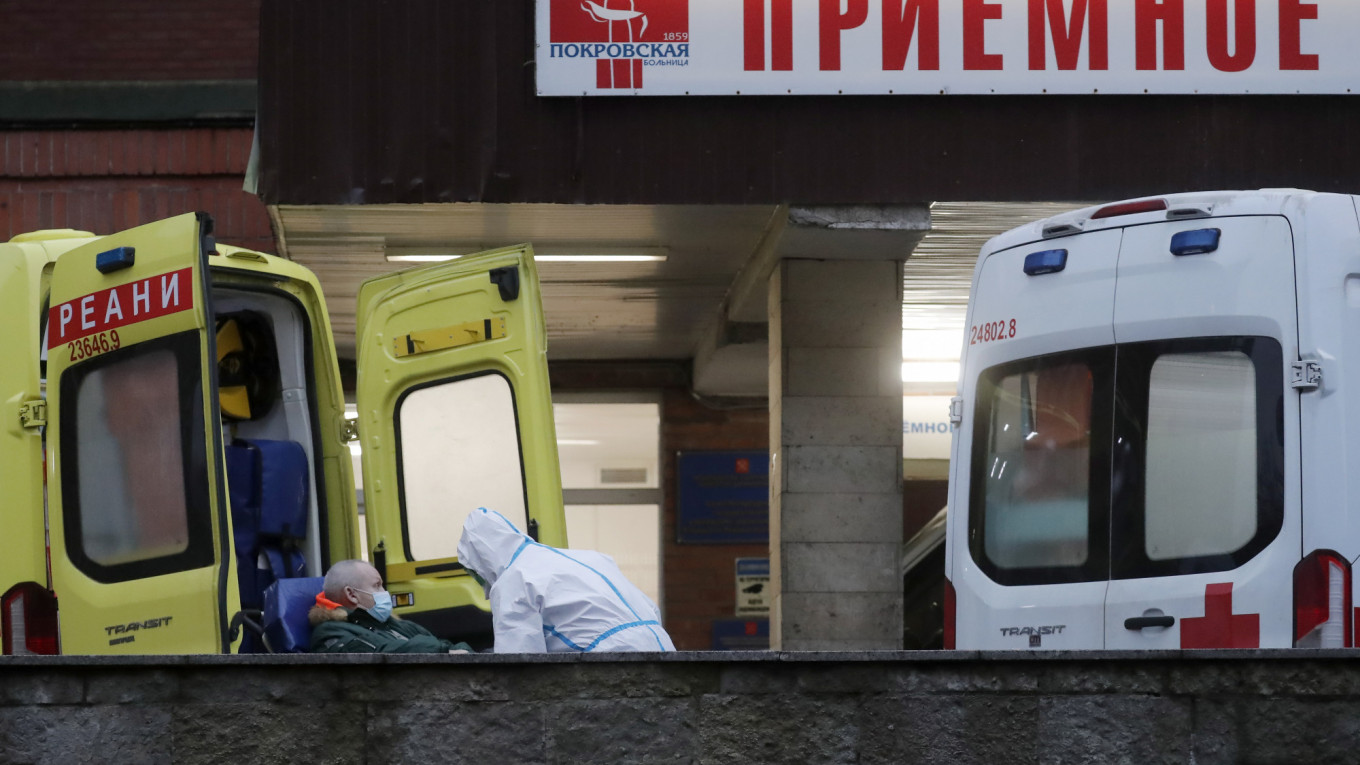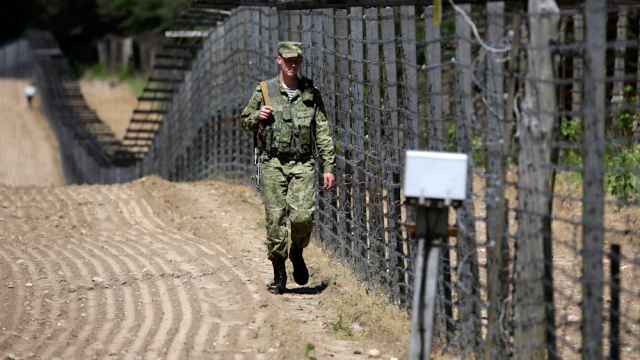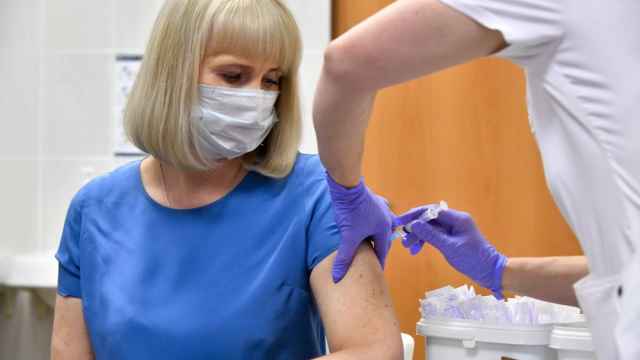Russia recorded more than 460,000 excess deaths during the first 12 months of the coronavirus pandemic, according to analysis of official statistics published by the Rosstat federal statistics agency.
In its latest report published Friday, Rosstat data showed 38,000 more people died in March 2021 compared to the same month in 2020 — the last time the country reported numbers of deaths close to what would be expected.
That was a 25% increase in fatalities — a larger jump than the 20% increase reported in February, even as case numbers were falling dramatically during the first three months of the year. It comes as hospital staff, epidemiologists and officials have warned the country could already be in the midst of an unreported third wave of the pandemic.
Excess deaths is seen by demographers as the most reliable indicator of the human cost of the coronavirus pandemic — calculated by comparing the total number of fatalities from all causes during a set period with those recorded in the same period before the pandemic. Experts say this provides a better understanding of how many people have died due to Covid-19 than by using official national tallies, which are subject to different counting standards.
Based on excess deaths, Russia has been one of the hardest-hit countries in the world by the pandemic.
The Rosstat figures also showed Russia continues to see a large difference in the number of excess deaths and officially-reported coronavirus fatalities. While in many countries, official Covid-19 deaths account for 90% or more of excess deaths, Rosstat said 167,000 people — or 36% — have officially died due to Covid-19 in Russia since the start of the pandemic. In another 83,000 cases, the statistics agency said patients with coronavirus had died, but the infection was not deemed to be the main cause.
Third wave?
Officials have grown nervous about the possibility of a third wave hitting Russia, as the country’s vaccination drive continues to proceed slowly, with only around one in ten adults having received a first dose.
Moscow is reporting more new infections than at any point since January, while the numbers of those in intensive care units and on ventilators in the capital’s flagship Kommunarka coronavirus hospital are at higher levels than seen during Russia’s first or second waves last year.
“The new wave is already here,” Vasiliy Vlassov, epidemiologist at Moscow’s Higher School of Economics (HSE) told The Moscow Times. “Though I don’t really like to talk about waves — just another climb higher.”
“It should increase more slowly than the first wave, and it should be less high than the second. But by how much, nobody knows,” he said, pointing to Russia having abandoned almost all anti-coronavirus restrictions and life having returned to normal across most of the country as a factor which could exacerbate the infection rate.
New infections peaked at 11,656 nationwide in May during Russia’s first wave, before hitting almost 30,000 during the second wave in December. Russia on Saturday reported 9,270 new infections.







